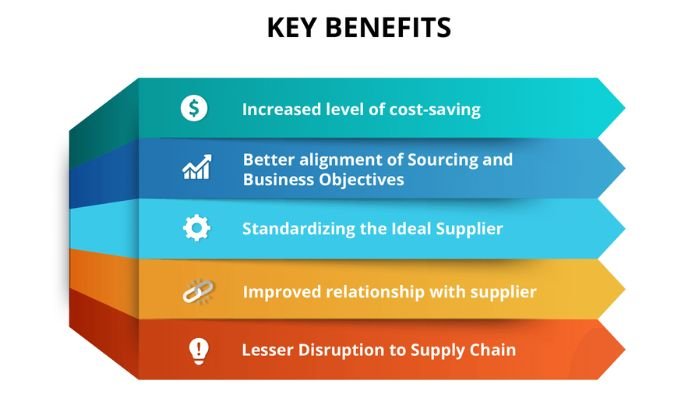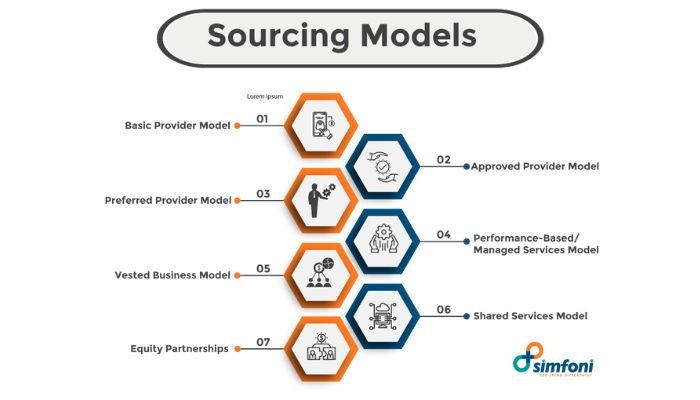Strategic Buying Compared to Other Approaches in M&A
Strategic buying refers to a specific approach where companies, like yours, acquire a business with an eye toward future gains or profit brought about by considerations at multiple levels- from quality control through supply chain management.
The focus here is on achieving long-term goals rather than short-term ones, which actually includes cost savings or operational efficiency, for instance.
Being able to identify acquisition opportunities that involve favorable terms, along with realizing objectives that require tactical knowledge, planning and deep engagement between buyer and supplier alike can produce a win-win situation to arrive at mutually beneficial results.
It can also definitely establish advantages such as better pricing deals or valuable collaboration beyond price which definitely extends into areas related to technology know-how or sharing risk exposure among various partners.
Contents
Strategic Buyer

Strategic buyers are literally companies looking beyond transactional ventures and seeking to identify long-term purchasing opportunities that create value for all parties involved.
They see to it that they have an intimate understanding of the market, their specific industry segment, as well as their own operations & capabilities.
As a result, they look at each potential purchase from both a strategic perspective – considering broader implications such as competitive advantage or achieving other corporate objectives – and also an operational one by evaluating factors such as cost reduction or production capacity increase.
Characteristics of a Strategic Buyer
The key characteristics associated with being a ‘strategic buyer’ include:
- Having detailed product/market knowledge
- Conducting thorough research on supplier markets
- Focusing on creating mutually beneficial agreements
- Stretching resources through economies of scale alternatives
- Leveraging information technology to support end-to-end supply chain management systems
- Taking part in sustainable business practices (e.g., reducing carbon emissions)
- Innovating new procurement methods and approaches
- Designing the most appropriate supply relationship structures – including global ones when necessary
Examples Of Strategic Buyers
Examples of companies using this approach can be seen mostly within industries which heavily rely on long-term partnerships, such as: automotive; aerospace and defense; oil & gas; technology manufacturing or retail.
Some of the high profile strategic buyers include companies like:
- Lockheed Martin
- Bosch Group
- Amazon
- Siemens
Benefits of Strategic Buying

Cost Savings
Strategic buying gives companies the ability to purchase items on a larger scale, allowing them to take advantage of bulk discount rates and lower costs per unit. In addition , strategic buyers can negotiate long-term contracts with suppliers that incorporate volume discounts as well as other benefits such as payment terms or delivery preferences.
Improved Supply Chain Management
By negotiating and purchasing in bulk from one single supplier, strategic buyers gain more control over their supply chain management by building relationships with key suppliers which in turn strengthen future collaborations for better cost control .
This efficient way of managing resources also helps identify opportunities for improvement when it comes to sourcing new materials or redirecting existing supplies at better prices or conditions.
Competitive Advantage
Having exclusive access to certain products through strategic buying agreements allows companies to undercut competitors ’ prices while maintaining quality standards – giving them an edge in the market place among consumers who prioritize price when making purchases decisions.
Increased Profitability
By obtaining higher profits due to cost savings (through negotiation and volume discounts), improving efficiency ( by providing reliable sources) , reducing waste/inventories levels, hedging against supply pricing uncertainties etc., being a successful strategic buyer leads directly into greater profitability streams within organisations.
Comparison of Strategic Buying with Other Approaches

Tactical Buying
This type of buying involves making short-term purchases to meet immediate needs or take advantage of discounted prices on niche products or services- it more on reactive type of purchasing rather than planning beforehand.
Benefits include cost efficiency and saving time, as the decision-making process is much quicker than with a strategic buyout. Disadvantages are that it may not be fully aligned with long-term goals and objectives, which reduces the potential for profitability over time.
Operational Buying
With this approach, users typically plan multiple orders in advance to satisfy ongoing operations within their company’s supply chain network.
Advantages include increased access to more options for supplies and products needed at lower costs; however there can be certain risks such as supplier reliability , interrupted delivery schedules due to stock shortages and no flexibility if ship dates change without notice especially if prior delivery commitments have been met.
Transactional Buying
The focus here is mainly on getting the best price from each individual vendor by using open bidding processes where vendors compete against one another based on predetermined criteria set forth in an RFQ (request for quote ).
Pros include being able to compare various bids quickly and accurately while gauging performance levels between different suppliers side by side before deciding who meets your overall goal requirements most efficiently.
Differences between Strategic Buying and Other Approaches
The primary differences lie in the planning processes that take place for each type of purchase, as well as the evaluation process used to determine which offers are most beneficial to a business operation .
Strategic buying is often an involved process where buyers must engage with various stakeholders in their industry through market research before making any decisions; whereas tactical, operational and transactional buying have more streamlined approaches due primarily to order size restrictions causing time management considerations operating at reduced levels.
Examples of Strategic Buying

Case Studies of Successful Strategic Buying
Apple’s Renewable Energy Purchases: In a move to combat climate change, Apple strategically bought renewable energy in 2020 from developers across Europe, North America and Japan totaling 230 megawatts (MW).
The purchase allowed the company to be supplied with clean energy while still meeting its supply needs as well as support local communities through investments that create jobs and stimulate economic growth.
iAnheuser-Busch’s Expansive Logistics Network: To ensure their products are distributed quickly and efficiently, Anheuser-Bush employed strategic buying tactics by acquiring various transportation companies for them to use for shipment services.
Through this procurement strategy they have been able to develop an extensive logistics network that increases their customer base; allowing them access customers previously out of reach due ot distance or regional preferences in beer brands .
They also increased distributor margins which makes it more profitable despite having invested heavily into infrastructure updates like faster trucks and enhanced global IT systems.
Real-World Examples of Strategic Buying
Walmart’s Local Sourcing Strategy: As part of Walmart’s drive towards sustainability is has implemented a strategy where sourcing takes place locally wherever possible on order to minimize transport emissions;
This doesn’t just cover produced goods but all goods sold within store locations around the world including Asia Pacific countries such as Australia & New Zealand.. By doing so, not only do Walmart reduce carbon footprints related with distribution costs significantly , but they stay competitive too.
IIaneru Inc.’s Expansion Into Adjacent Markets: Fintech firm Illaneru wanted to expand markets beyond traditional financial sector offerings, however in light of the high risk nature of security investments, they had undertaken thus far expansionary resources .
Instead of employing strategic buyer mentality, the unit made informed decisions when selecting target to enter adjacent industries; complementary to existing suite solutions end view.
Overall
Strategic buying is an important approach to purchasing that can bring a number of key benefits and advantages, such as cost savings, improved supply chain management, competitive advantage, increased profitability and last but not the least, enhanced risk management.
Successful strategic buying relies upon the capabilities of experienced buyers who necessarily understand the particulars surrounding each purchase.
Real-world examples of organizations using successful strategic buying approaches show how these organizations have definitely achieved significant cost savings with strategically planned purchases. Overall, companies looking for long term success should consider making use of strategic buying in their procurement process compared to other approaches.

Ryan Nead is a Managing Director of InvestNet, LLC and it’s affiliate site Acquisition.net. Ryan provides strategic insight to the team and works together with both business buyers and sellers to work toward amicable deal outcomes. Ryan resides in Texas with his wife and three children.